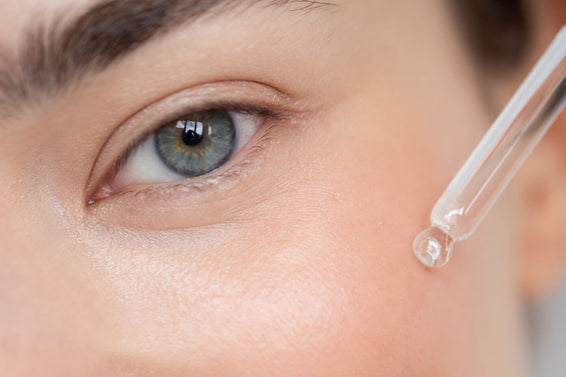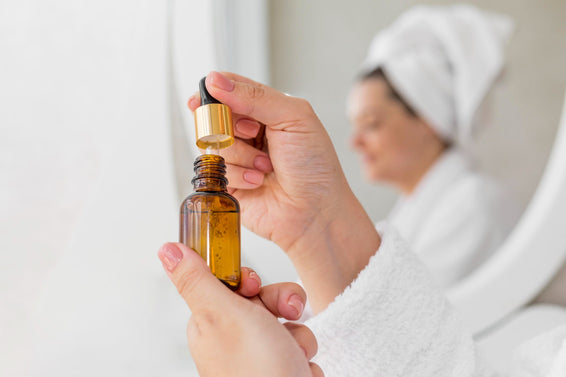Moisturizers
Moisturizers are the holy grail of every face care routine. They save your skin from feeling dry and rough. There are different types of moisturizers with various benefits for your skin. They slow down skin aging as well as prevent sun damage. Not using moisturizers can have instant and long-term effects on skin. If you want to maintain soft and supple skin, make sure that you don’t skip moisturizers.
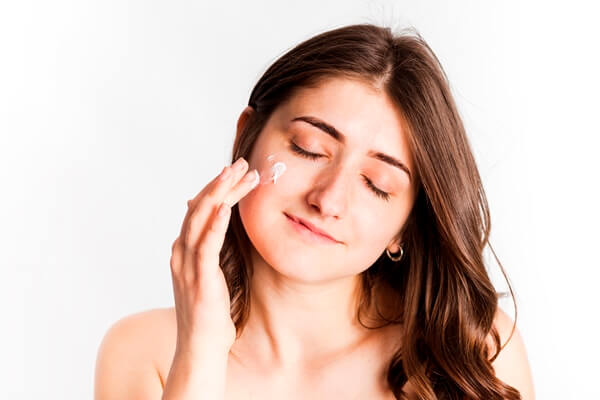
Everyone needs moisturizer, no matter their skin type. Yes, you also need a moisturizer even if you have oily skin. Moisture is what helps your skin stay plump and firm. Your skin does not only get dry when you skip this product in your routine. It makes your skin prone to irritation and other skin concerns too. Find out why your skin needs moisturizer and which one you should choose for your skin type.
What is A Moisturizer
Moisturizer is a mixture of water and oil. It contains certain ingredients that can increase water and lipid content on skin’s surface. Moisturizer improves your skin’s natural barrier and hydration. It attracts water and binds them on skin’s surface to increase moisture and prevent dryness. Lack of moisture can make your skin feel rough, dry, and thin. When you don't apply moisturizers often, it makes your skin itchy and irritated too.
Keep in mind that there are suitable moisturizers for each skin type. Different types of moisturizers contain key ingredients, which affects how they work on skin. These moisturizers can increase water or lipid content on skin. They help strengthen your skin's natural barrier too. It is important to apply moisturizer often to keep skin healthy and looking young.
Fortifies Skin’s Natural Barrier
Your body is made up of 60% water. Your skin alone contains around 64% water, which makes it essential for healthy skin. Your cells and tissues need water to maintain their shape and function. If your skin loses moisture, it becomes rough, dull, and prone to irritation.
Your skin has a natural barrier that prevents loss of moisture. This natural barrier is comprised of dried, dead skin cells and intercellular matrix. Intercellular matrix is made of various lipids and fatty acids naturally produced by skin. These lipids and fatty acids are called sebum too. When your skin’s natural barrier is damaged, it does not only make your skin dry and dehydrated. It can make your skin prone to irritation and sensitive skin reactions as well.
Sebum helps keep the surface of your skin soft and smooth. It locks in the water from skin's deeper layers to prevent loss of moisture. Moisturizers improve not only water content but lipid content as well. They deliver ingredients that help increase lipids on skin's surface to attract and trap water from within. Keep in mind that oil and water do not mix. This is how your skin’s natural barrier traps and retains moisture.

Prevents Trans-epidermal Water Loss
Trans-epidermal water loss happens when water content from the deeper layers of your skin rise to the surface and evaporates. It is normal and it happens every day. This is why drinking water is important. However, trans-epidermal water loss can speed up when skin’s natural barrier is damaged. This leaves skin with less volume and radiance.
Moisturizers help reduce trans-epidermal water loss because they help lock water on skin. They draw water from the air as well to provide moisture on the surface and deeper layers of skin. Trans-epidermal water loss happens frequently during winter due to low humidity. If your skin experiences dryness during winter, try these tips from the blog below to keep your skin moisturized.
How Moisturizer Helps Maintain Healthy Skin
Moisturizer is all about increasing the lipid content on the surface of your skin. Lipids help attract water and bind them on the surface of your skin. This increases water content on the deeper layers of your skin while strengthening the natural barrier. Lipids prevent water loss as well to maintain skin’s firm and supple texture. Moisture helps increase the ability of your skin to fight against allergens and irritants too.
Moisturizers prevent dehydration or loss of water content on skin's deeper layers. Hydration is the water content found on the deeper layers of skin. Hydration affects your skin’s volume and firmness. Low water content reduces skin volume, which leads to tight and sagging skin. This affects how your skin looks and feels because skin cells and tissues need water to retain their shape.
When your skin loses water content, these cells are damaged and lose their ability to maintain skin’s structure. Hydrating products help maintain the volume of your skin as well as its firmness. Since hydrated skin has more volume, it feels softer and suppler to the touch.
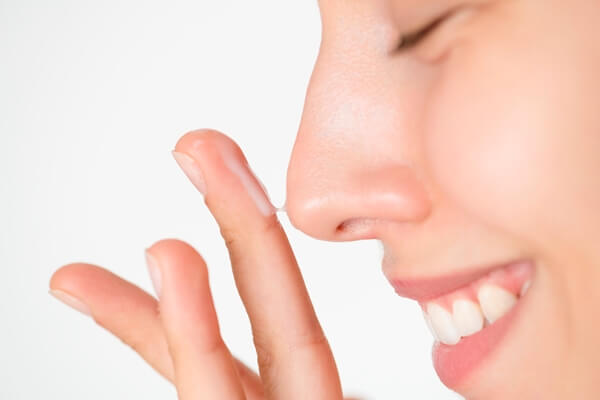
Difference Between Dryness and Dehydration
Dry skin is different from dehydrated skin. Dryness happens at the surface of your skin. It is the loss of lipids that attract and trap water on skin. Lack of natural oil on skin leaves it rough, thin, and scaly. If you have dry skin, you might experience flakiness, itchiness, and irritation. This is because the natural barrier of your skin is damaged. These are common signs of dry skin:
- Flaky skin
- Itchiness
- Rough skin texture
- Tight skin texture
- Irritation
Meanwhile, dehydration is the loss of water content on your skin’s deeper layers. It affects skin volume and elasticity. Lack of hydration makes skin prone to sagging and skin conditions such as acne. The elasticity of your skin refers to its ability to bounce back and retain its form when stretched. Hydration can affect the collagen and elastin levels of your skin. Both of these fibers are responsible for the maintenance of skin’s firmness and suppleness. Below are signs of dehydrated skin:
- Redness
- Inflammation
- Increased sensitivity
- Defined wrinkles and fine lines
- Acne
Visit the page below to learn how dehydration makes acne happen and how you can prevent it. We've got some tips for you to keep your face free of acne and pimples.
![]() Read More: Acne
Read More: Acne
Different Types of Moisturizers
There are different types of moisturizers. Their effects on skin depend on which main ingredient they contain. These four types of moisturizers suit the needs of different skin types. Find out what makes these moisturizers different and common ingredients used on them.
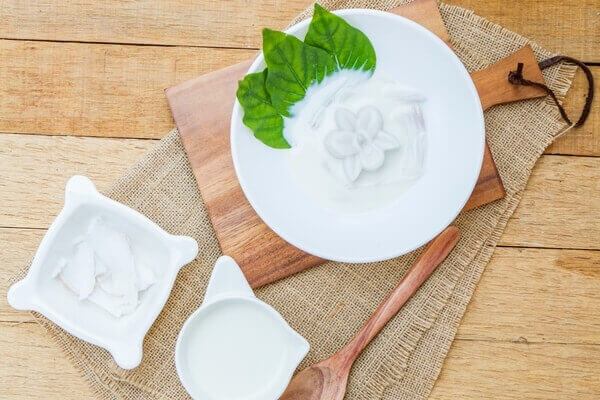
Humectant
Humectants draw water from the atmosphere and deeper layers of skin to keep the surface moisturized. Different types of humectants behave in different ways depending on humidity and how well they bind to water molecules. The most common humectants used to create moisturizers are glycerin, lactic acid, and hyaluronic acid. Hyaluronic acid is a great ingredient because it holds water a thousand times its own weight. This means that it can keep your skin moisturized far longer than any other products. If you want to learn more about hyaluronic acid benefits for skin, check out the page below.
![]() Read More: Hyaluronic Acid Serum
Read More: Hyaluronic Acid Serum
Emollient
Emollients are ingredients that help fill the gaps between skin cells. Most emollients have the same properties as lipids found on skin. Due to these similar characteristics, these ingredients are easily absorbed by skin. They are heavier than humectants, and often help keep the surface moisturized for a long time. Collagen, shea butter, and other natural butters are common emollients used in moisturizers.
Occlusives
Occlusives are types of moisturizers that create a protective layer of lipids on the surface of your skin. They seal moisture into skin, which helps prevent trans-epidermal water loss. This type of moisturizer is very heavy, often heavier than emollients and humectants. However, they can leave skin feeling oily and heavy. It is important to find a suitable moisturizer that contains an occlusive to prevent clogging of pores. Common occlusives include mineral oil, olive oil, silicon, and petrolatum.
Ceramides
Ceramides are naturally found on skin. Studies show that low ceramide levels on the surface of your skin can make it dry and damaged. Ceramides are essential to your skin’s natural barrier. It reduces the risk of drying and irritation. There are plant-based ceramides that you can use to moisturize skin. Ceramides are safe to apply on all skin types. But this type of moisturizer is very helpful when it comes to moisture content of dry and sensitive skin.
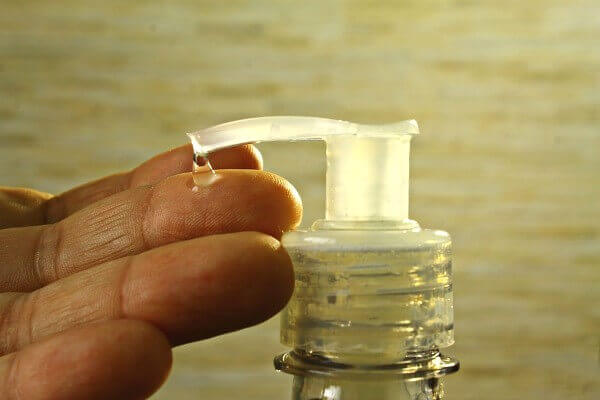
Moisturizer for All Skin Types
There are moisturizers that are suitable for certain skin types. It is important that you use a moisturizer that is gentle and safe to apply on your skin. Read below to find out which type of moisturizers is best for these skin types.
Normal Skin
Normal skin has little to no imperfection. If you have normal skin, all you have to worry about is to provide moisture and protection on skin. A moisturizer with equal parts oil and water is the perfect combination for your skin. You can use lotions or creams.
Dry Skin
Dry skin lacks natural lipids on the surface of your skin. It feels rough and tight to the touch. You should get a heavy cream or oil to moisturizer your skin. It will help improve the lipid content on the surface of your skin while preventing water loss.
Oily Skin
When your skin produces too much oil, you should stick to water-based moisturizers. They help hydrate skin to regulate oil production. This will reduce the oiliness of your skin while maintaining its supple and firm texture. Castor oil is a great moisturizer for oily skin. It helps control oil production and reduces the oiliness of skin.
Sensitive Skin
Sensitive skin reacts to any harsh ingredients in skin care products so make sure to choose hypoallergenic and non-comedogenic formulas. Non-comedogenic moisturizers do not contain ingredients that can block pores.
Mature Skin
Mature skin may experience lack of water hydration. This gives skin a sagging and thin texture. You can use hydrating products that can help increase skin volume. Hyaluronic acid is a great ingredient in your moisturizer because it can hold so much water. This ingredient helps improve the moisture content of your skin as well as its volume and elasticity.
Combination Skin
Combination skin is characterized by having two or more different skin types. Your T-zone is an area that is normally oily. This area includes the nose, forehead, and chin. If you have combination skin, you can use lotions that do not contain acids. Stick to water-based products because they will help moisturize skin without clogging pores.
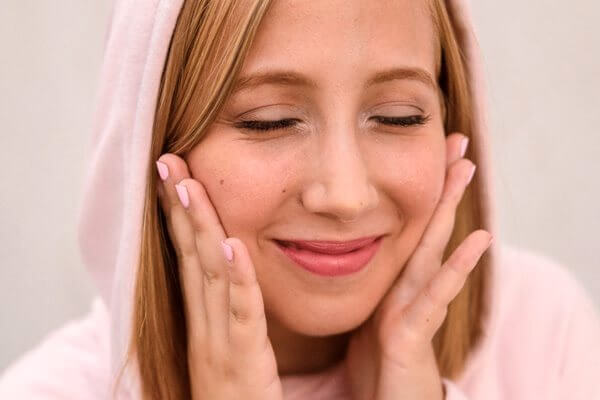
Benefits of Using Moisturizer Everyday
Moisturizer is one of the most important skin care products you should never skip. You can tell that your skin needs a moisturizer when it starts to feel rough and look dull. Your skin glows from the inside if it has enough moisture and hydration. Below are the various benefits you can get when you apply moisturizer every day.
Slows Down Skin Aging
Dryness and dehydration can speed up skin aging. This causes skin to lose volume, elasticity, and radiance. Basically, your skin deteriorates faster if you don’t moisturize. Skin cells and fibers need water to maintain their shape and function. A suitable moisturizer increases the strength of your skin’s natural barrier as well, protecting it from pollution. Did you know that your skin’s natural barrier can reduce free radical damage? That’s right. Moisturizers do not only maintain healthy skin, but they also protect it too.
Fades Fine Lines and Wrinkles
Since moisturizers prevent water loss, they can prevent the loss of volume and elasticity too. With a balanced water content on skin, your elastin and collagen levels are balanced. This leaves your skin smooth and soft. Your skin retains its firm and supple form without sagging. Using moisturizer makes your skin plumper, which helps fade signs of skin aging such as fine lines and wrinkles.

Makes Skin Look Radiant
Moisturizers help make your skin look radiant. Dryness and dehydration cause damage to your skin’s natural barrier. This leaves your skin easily irritated and flaky. Redness and flaking give your skin a dull appearance. Skin cells at the surface of your skin can’t repair themselves, which makes skin look tired too. With enough hydration and moisture, your skin looks like its glowing from inside.
Moisturizer is one of the most basic products you use on skin, but its effects feel so luxurious. It gives your skin that velvety flawless texture that feels so good to touch. If you want to achieve the fresh and moisturized appearance, pair moisturizers with the best serums. Serums improve the ability of your skin to retain moisture too! Check out these products to find out how they can help make your skin look younger and brighter.
![]() Read More: Face Serums
Read More: Face Serums







